For anyone interested in learning more about the military conflicts of the past, the stories of those who experienced them first-hand provide an invaluable insight into just what it was like to go into combat. The following biographies and memoirs bring to life in gripping detail the challenges faced by combatants who fought in some of the most harrowing military campaigns in human history. Told with humor and honesty, these accounts, above all, reveal the indomitable spirit of often seemingly ordinary men who showed extraordinary courage in the face of the horrific reality of war.
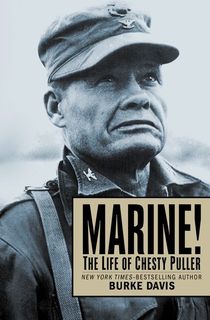
Marine!
Burke Davis’ 1962 book about war hero Lewis Burwell “Chesty” Puller remains one of the all-time classic military biographies.
Puller served in the US Marine Corps from 1918 to 1955, rising from humble beginnings to the rank of Lieutenant General. Along the way, he became the most decorated Marine in US military history, winning no less than five Navy Crosses for valor. By the time of his retirement, Puller had acquired cult hero status in the eyes of his fellow Marines. However, his trademark blunt honesty did not always go down well with the powers-that-be in Washington, particularly during the 1950s when his harsh, but fair, assessment of US progress in the Korean War hit the headlines. Davis’ comprehensive biography covers all these topics, plus much more besides, bringing the true story of Puller’s extraordinary military career compellingly to life.
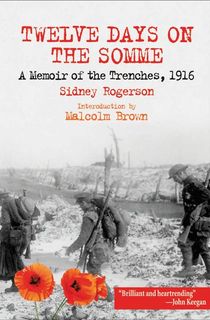
Twelve Days on the Somme
As its title suggests, this evocative memoir by a young World War I British Army officer vividly conveys the grim reality of life in the trenches during the Battle of the Somme. For a 12-day period in 1916, Sidney Rogerson saw front-line action with the 2nd Battalion of the West Yorkshire Regiment at one of the bloodiest battles in human history. Rogerson’s compelling eyewitness account gives an invaluable rare insight into how he and his men dealt with such a harrowing ordeal through camaraderie, resilience and an unshaken belief that they were fighting for a just cause.
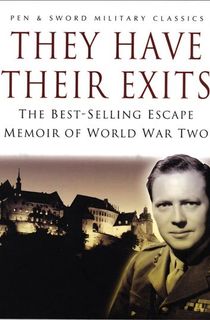
They Have Their Exits
First published in 1955, this bestselling memoir provides a window into the extraordinary wartime experiences of British army officer, Airey Neave. Later a prominent politician, the knowledge that Neave’s life would eventually come to an end as the result of a 1979 terrorist attack in London makes this account all the more poignant.
After being captured by the Nazis in 1940, Neave made several escape bids before ending up in the infamous Colditz Castle. They Have Their Exits recounts the story of Neave’s against-all-odds escape from the seemingly impregnable hilltop fortress and his perilous journey across Europe to become the first British POW incarcerated in Colditz to make it back home safely to England. As if that wasn’t interesting enough, Neave’s memoir concludes with many fascinating insights into the leading Nazi figures whom he later encountered as a result of his involvement in the Nuremberg War Criminals Trials.
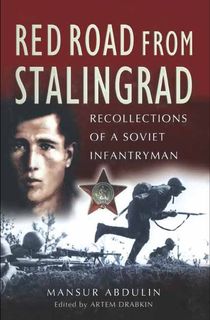
Red Road from Stalingrad
Mansur Abdulin’s Red Road from Stalingrad tells the story of World War II from an entirely different perspective. As a Soviet infantryman, Abdulin fought in the Red Army at the Eastern Front and saw action against the Nazis from Stalingrad and Kursk to the Dnieper River.
Abdulin’s memoir was published over four decades after the war ended. The author reportedly decided to commit his wartime recollections to paper simply because no-one else had told the story from the perspective of the Red Army veterans. This rare firsthand account was well worth the wait and provides a fitting tribute to his comrades-in-arms on the Eastern Front, highlighting their courage, resourcefulness and capacity for acts of humanity even in the heat of battle.
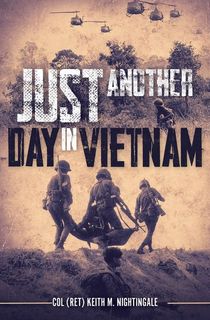
Just Another Day in Vietnam
This gripping military memoir dives deep into a little-known battle at Suoi Long Creek during the Vietnam War, in which its author saw action in his capacity as Special Advisor to an elite South Vietnamese Ranger unit. In June 1967, members of the unit, including Col. Nightingale, were tricked into an ambush by the 5th Viet Cong Division and were compelled to fight for their lives whilst awaiting reinforcements. Narrated in the third person, Nightingale’s memoir tells the story from a variety of different perspectives including not only his own version of events, but also the combined stories of others who served on both sides of the battlefield that day. In so doing, he has produced an account that is “riveting, heart-pounding and mind-racing” (ARMY Magazine).
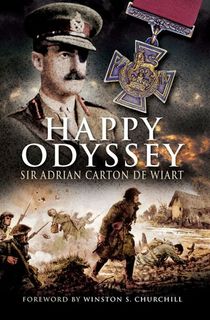
Happy Odyssey
First published in 1950, with a foreword by Winston Churchill, Happy Odyssey ranks as one of the most colorful military autobiographies ever written. Serving in the British army for nearly five decades, Sir Adrian Carton de Wiart’s extraordinary exploits during three major early 20th-century conflicts were the stuff of legends and would not have looked out of place in a work of fiction. Indeed, he is widely reported to have been the inspiration for one of the main characters in Evelyn Waugh’s Sword of Honor trilogy.
Carton de Wiart’s autobiography is written with all the honesty and humor that you would expect from such a colorful individual. During World War I alone, he lost an eye and a hand, but bounced back from adversity to lead his men into battle at the Somme, where, with his distinctive black eye patch, he cut a striking figure. He won a Victoria Cross for valor at the Somme, just one of numerous medals which the British Army hero received throughout his long career.
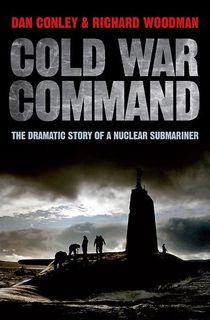
Cold War Command
Captain Dan Conley’s distinguished career as a British naval submariner forms the backdrop to this absorbing military memoir, which provides a rare insight into the notoriously secretive world of the so-called “Silent Service”. Having started his naval career on traditional diesel-powered submarines, Conley rose through the ranks to become commander of a Royal Navy nuclear submarine at the height of the Cold War. He later became involved in strategic policy-making regarding the future of the Royal Navy submarine service in the post-Cold War era.
Together with his co-author, Richard Woodman, Conley includes plenty of fascinating content about the different aspects of his long and varied career. As well as an intriguing insight into the day-to-day operations of a nuclear submarine and just what it takes to serve on such a vessel, Conley casts a critical eye over the broader strategic process.

Samurai!
First published in 1957, this riveting autobiography recalls the experiences of one of Japan’s leading World War II fighter pilots. The book takes its title from the legendary warrior caste of Japanese history, from whom the author’s family was descended. Taking inspiration from the Samurai warriors, Saburo Sakai himself proved to be a fearsome opponent. He was reportedly involved in over 200 dogfights during World War II and claimed in his autobiography to have shot down 64 Allied aircraft, suffering several serious injuries of his own along the way. Co-written by Martin Caidin and Fred Saito, Samurai! provides a unique insight into the mindset of this renowned Japanese flying ace as well as offering a different perspective on the war in the Pacific.

Personal Memoirs of Ulysses S. Grant
Described by his contemporary Mark Twain as “a great, unique and unapproachable literary masterpiece”, President Ulysses S. Grant’s eloquent account of his distinguished military career still has much to offer readers today. Having graduated from West Point in 1843, Grant served with distinction in the Mexican-American War, before rising to prominence as the man who led the Union Army to victory in the Civil War. This personal memoir gives the modern reader an invaluable insight into the strategic mind of one of the 19th century’s greatest generals, and is packed full with fascinating observations about those he fought with and against during one of the most tumultuous periods in US history.

Chickenhawk
Chickenhawk tells the story of the Vietnam War through the eyes of helicopter pilot Robert Mason. During his stint of duty in Vietnam in the mid-1960s, Mason flew more than 1,000 helicopter missions transporting troops, equipment and supplies to and from the combat zones, often in the most perilous of conditions. This dramatic and painfully honest eyewitness account of his experiences was published nearly two decades later, and its epilogue reveals that following his return to civilian life in the USA, Mason served time in prison as a convicted drug smuggler, an incident he subsequently attributed to PTSD.
This post is sponsored by Open Road Media. Thank you for supporting our partners, who make it possible for The Archive to continue publishing the history stories you love.


